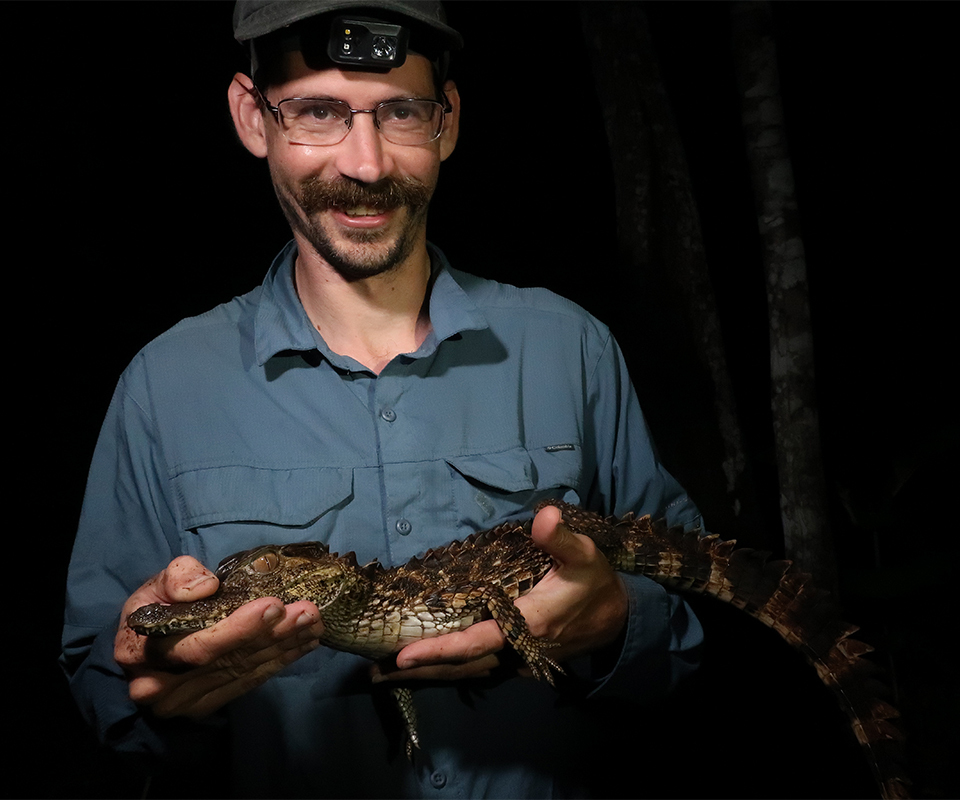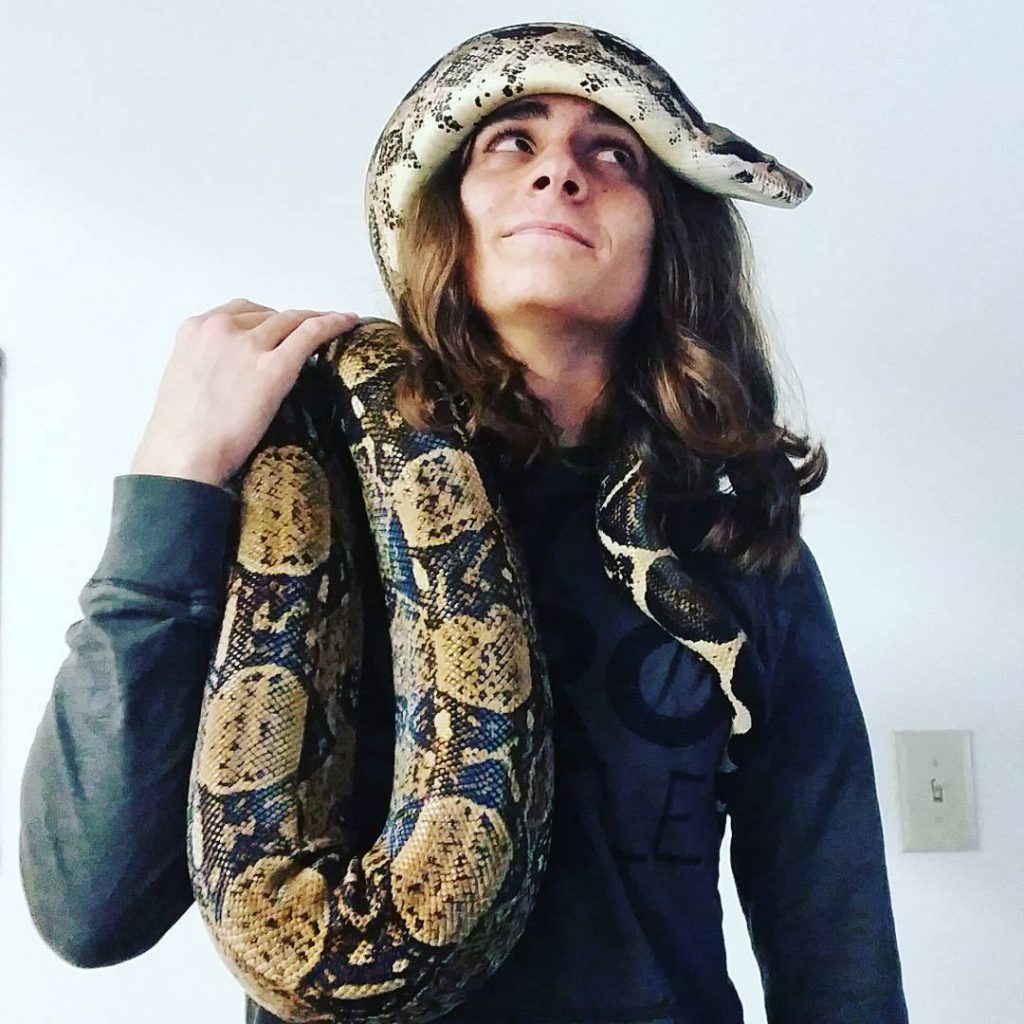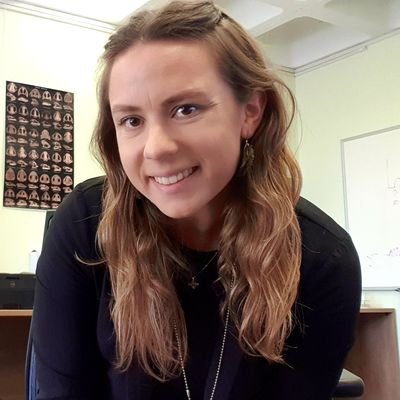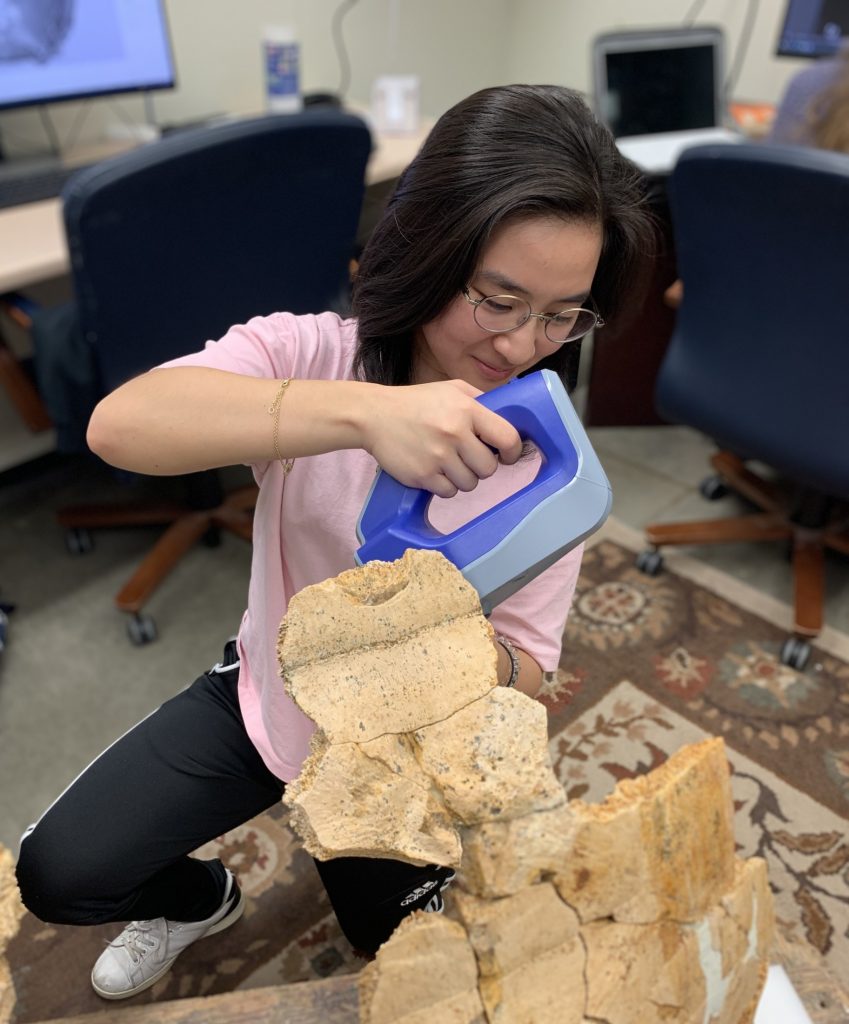 Edward Stanley
Edward Stanley
Ed is an Associate Scientist and director of the Digital imaging division. In addition to assisting Florida Museum scientists with their digitization projects, his research focuses on new applications of Computed Tomography data for research and education, Phylogenetics of Sub-Saharan African lizards and frogs, diversification of defensive structures and Reptile and amphibian Paleontology. In his spare time, Ed enjoys gardening and fighting the inexorable decay of his old house with various power tools.
elstanley@flmnh.ufl.edu
Research website
Twitter @DrScanley
 Zachary Randall
Zachary Randall
Zach is a Biological Scientist and the Digital Imaging Division’s collection manager. He specializes in the digitization of natural history collection objects for research, education, and outreach using 2D and 3D imaging techniques. He’s an Ichthyologist and his research has focused on the systematics of freshwater fish from Southeast Asia. In his spare time, Zach is drumming, rock climbing, or landscaping.
Gary develops the Virtual Reality software experiences at the Digital Imaging division, and splits his time between the Digital lab and the Office of Museum Technology. Gary’s undergraduate research involved software development and virtual reality and we suspect he took this position to to blend his dual interests of 3D imaging technology and interacting with large snakes.
In his personal life, Gary is a passionate mountain biker and bike mechanic (believe it or not, mountain biking is big in Central Florida), outdoors explorer, scifi nerd, DIYer, and part-time house husband.
Jaimi is a postdoc in the Blackburn Lab, working on the oVert Thematic Collections Network, and is responsible for many of the amazing interactive models on the Blackburn and Florida Museum Sketchfab pages. Her research includes comparative morphology of lizard skulls, arachnid weaponry, and snake brains and neurosensory systems. She has worked in field sites and labs in Australia, New Zealand, and the USA.
Victoria Tran
Victoria got her start in the digitization world by imaging butterflies at the McGuire Center for Lepidoptera and Biodiversity. In 2019 she took over the Blue-light scanning projects at Dickinson Hall and has spent the past three years scanning fossil and extant specimens for a wide range of grants, leading several workshops and trainings. Victoria is now employed as a Digital Imaging Specialist at Yale’s Peabody Museum.


